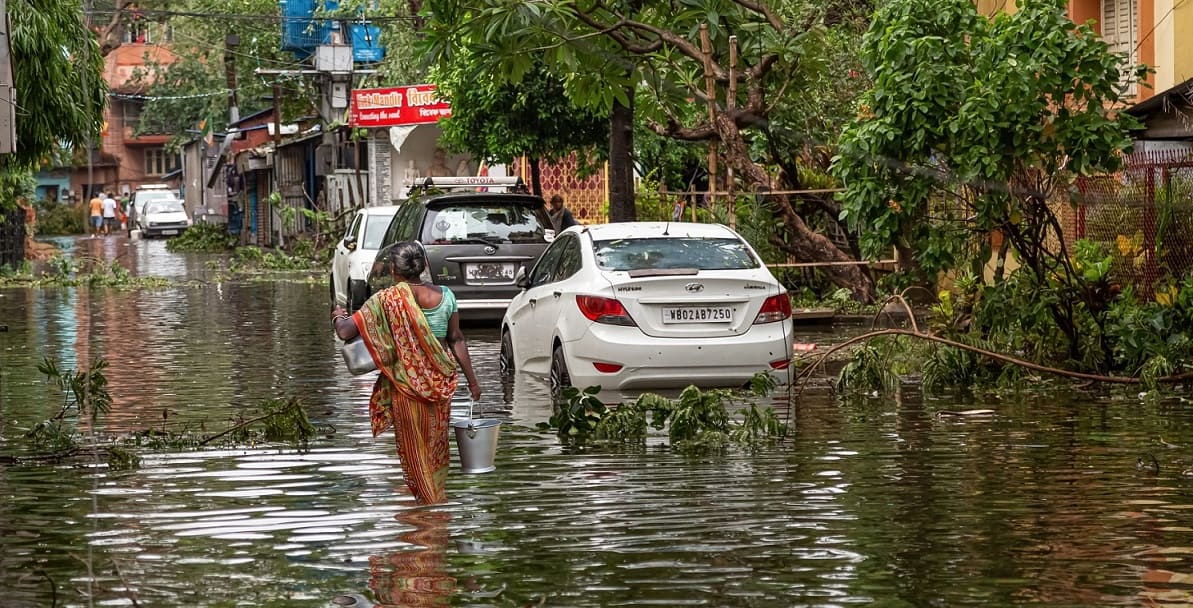



You’ve been hearing the number 1.5°C a lot when it comes to climate action goals. But what does it take to keep the planet on track to limit global warming to 1.5°C above pre-industrial levels?
If there is to be any mitigation of emissions, then climate accountability is essential to deliver on Paris Agreement goals. In its recent study, the Council on Energy, Environment, Water (CEEW) outlined the need to strengthen accountability in the global climate governance architecture, which has been missing so far and remains unaddressed under the Paris Agreement. With only a few days left, COP27 should now explore ways to enhance the ownership of the pledges committed globally as well as ensure compliance and enforcement of climate obligations and agreements.
The current state of climate efforts is alarming. With the current pledges, the world is on track to 2.5°C of warming by the end of the century. And about 86 per cent of the carbon budget for the 1.5 degrees Celsius (50 per cent likelihood) could be depleted by 2030, leaving only 70 Gt of the CO2 budget for post-2030. On this, several nations have expressed their concerns at the leadership summit in the initial two days of COP27.
But the larger question remains: How will we be on track with no accountability mechanism in place?
The question of missing accountability comes from the bad experience in the pre-2020 climate era. The poor performance of developed countries raised questions. In the early ’90s debate on climate change, the principle of common but differentiated responsibilities was established. Based on this principle, developed countries were bound to lead emission reduction measures. However, despite the relatively weaker targets, the efforts of developed countries were limited in the pre-2020 climate era. According to CEEW’s study, developed countries collectively emitted about 25 GtCO2eq more than their estimated emission allowances in the 2008-2020 period as a result of non-participation by major economies and misuse of accounting provisions.
Despite repeated demands, there was no effort by any developed economy towards revisiting or enhancing their pre-2020 levels. To add to this, on the support front, the target of USD 100 billion annually for developing countries by 2020 remains insufficient. As per a recent report by OECD, climate finance support from developed to developing countries was about USD 83.3 billion for 2020. And as we move ahead with the commitments under the Paris Agreement, Asian countries1 would need about USD 1.3 trillion each year for the next 9 years to support their climate measures.

Woman carrying essential drinking water through water logged city street after massive cyclonic storm Amphan strike at Kolkata | Credit:Roop Dey/iStock
There were no hard measures set against countries for failure of delivery (implementing action or providing support), non-compliance, or non-participation. This puts the climate negotiation process into question. Also, the trust and faith, which is at the heart of the climate debate among the countries, non-state actors and civil society, dilute.
Accountability and compliance under the Paris Agreement are no different. Though the agreement embodies the global stocktake process, enhanced transparency framework and compliance committee, its functioning is limited to the procedural aspects of the agreement, rather than actual delivery or achievement. Little could be done to hold countries accountable for not meeting their promises because the Paris Agreement is based on facilitative, non-intrusive, and non-punitive principles.
The missing accountability in the climate change debate is a matter of grave concern and must be addressed as we implement the Paris Agreement. There are several opportunities that should be explored to strengthen accountability under the Paris Agreement. These are:
To bring back faith and trust in the climate negotiation process, developed countries need to act upon what was agreed upon in the pre-2020 era on action and support. They should also urgently scale up mitigation ambition and implementation and ensure the burden of additional consumption of carbon space in the pre-2020 climate are not transferred to developing countries.
The current global mean temperature is about 1.15°C above the pre-industrial average. With this alone we have seen extreme heatwaves, drought and devastating flooding that have affected millions and cost billions this year. Strengthen climate accountability now – it’s what will keep every stakeholder aligned with the ultimate goal.
Notes
1 Afghanistan, Bangladesh, Bhutan, Cambodia, China, India, Indonesia, Laos, Malaysia, Maldives, Myanmar, Nepal, Pakistan, Philippines, Sri Lanka, Thailand, Timor-Leste, and Vietnam
Sumit Prasad is a Programme Lead at the Council on Energy, Environment and Water (CEEW), an independent not-for-profit policy research institution. Send your comments to [email protected]






Add new comment